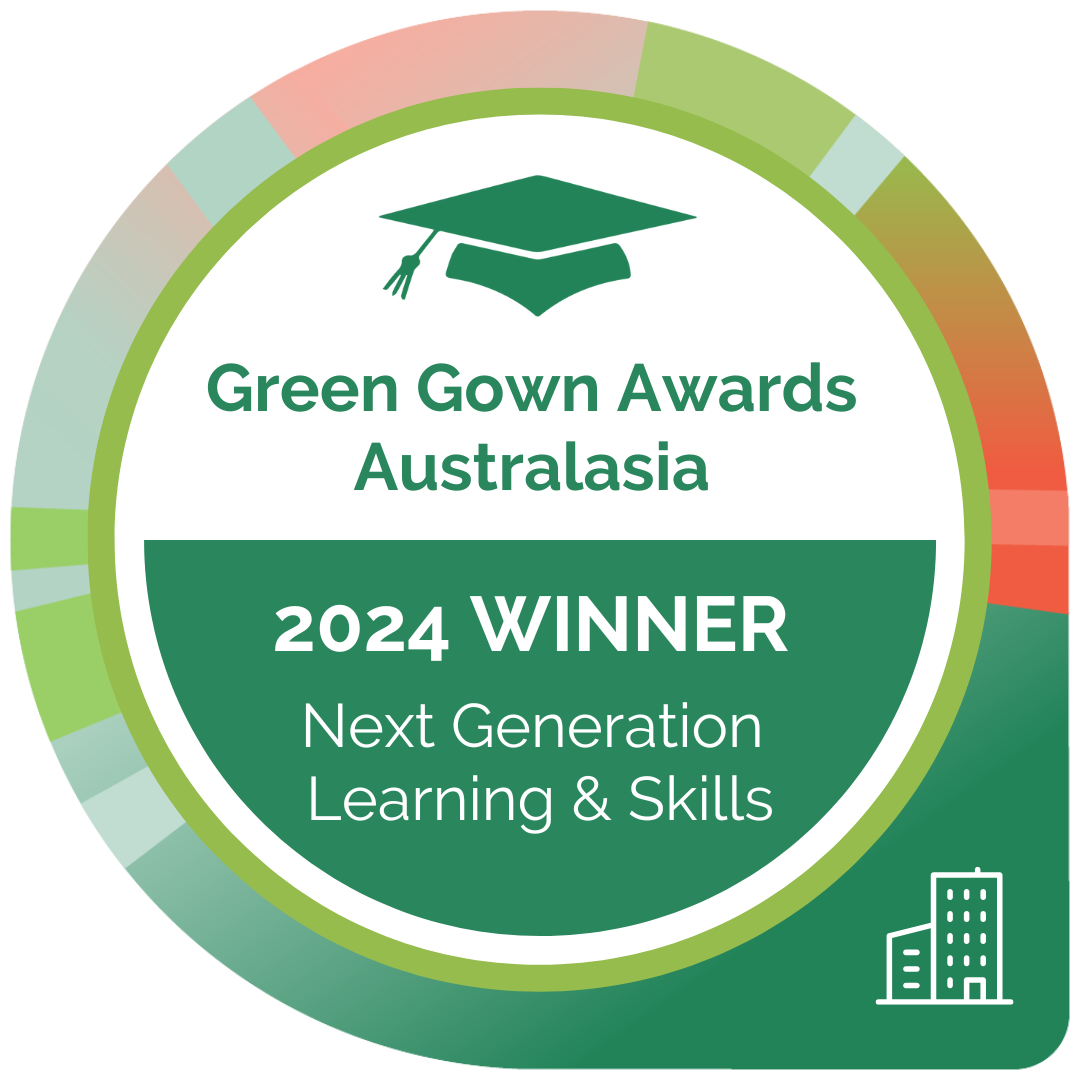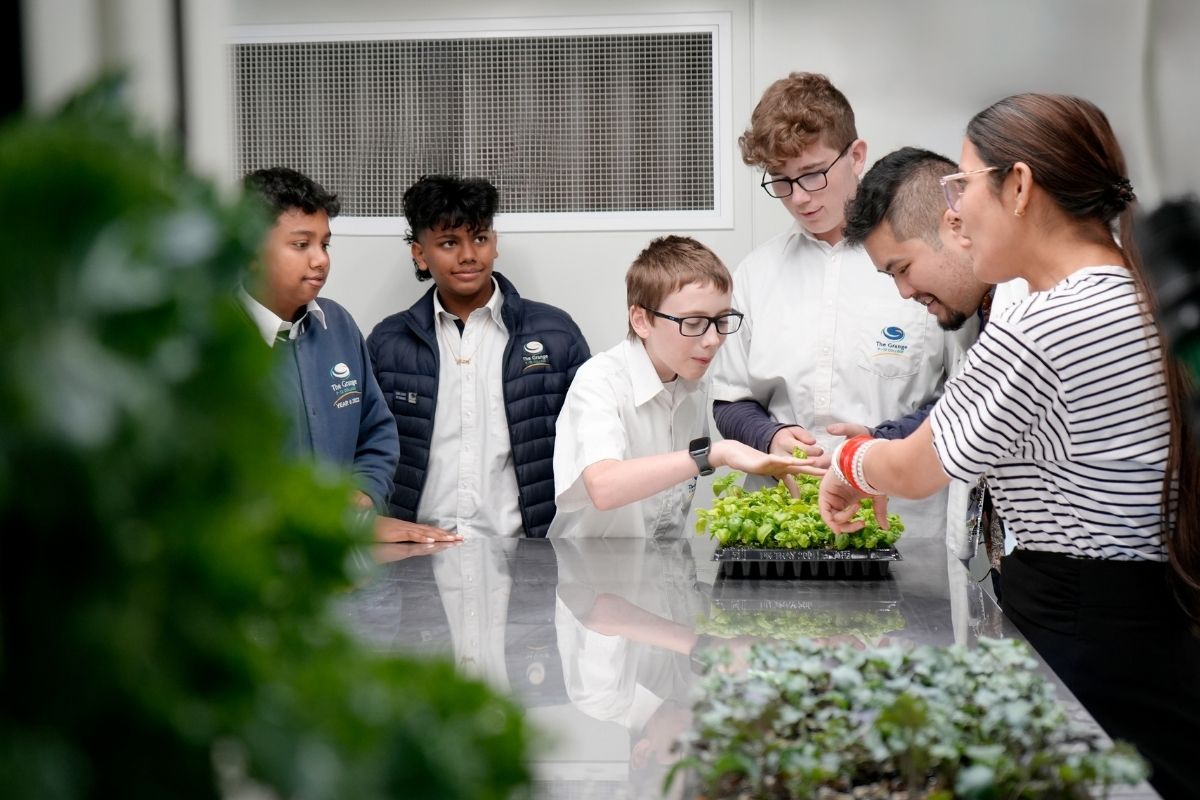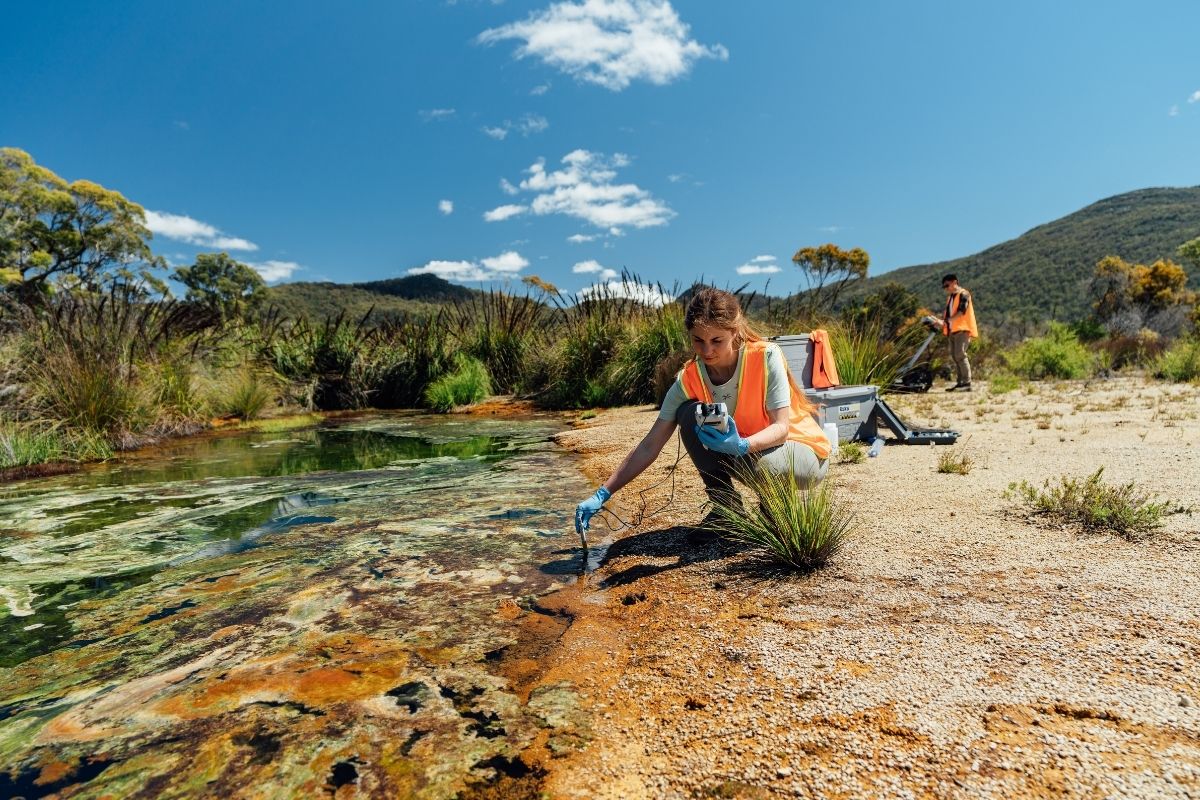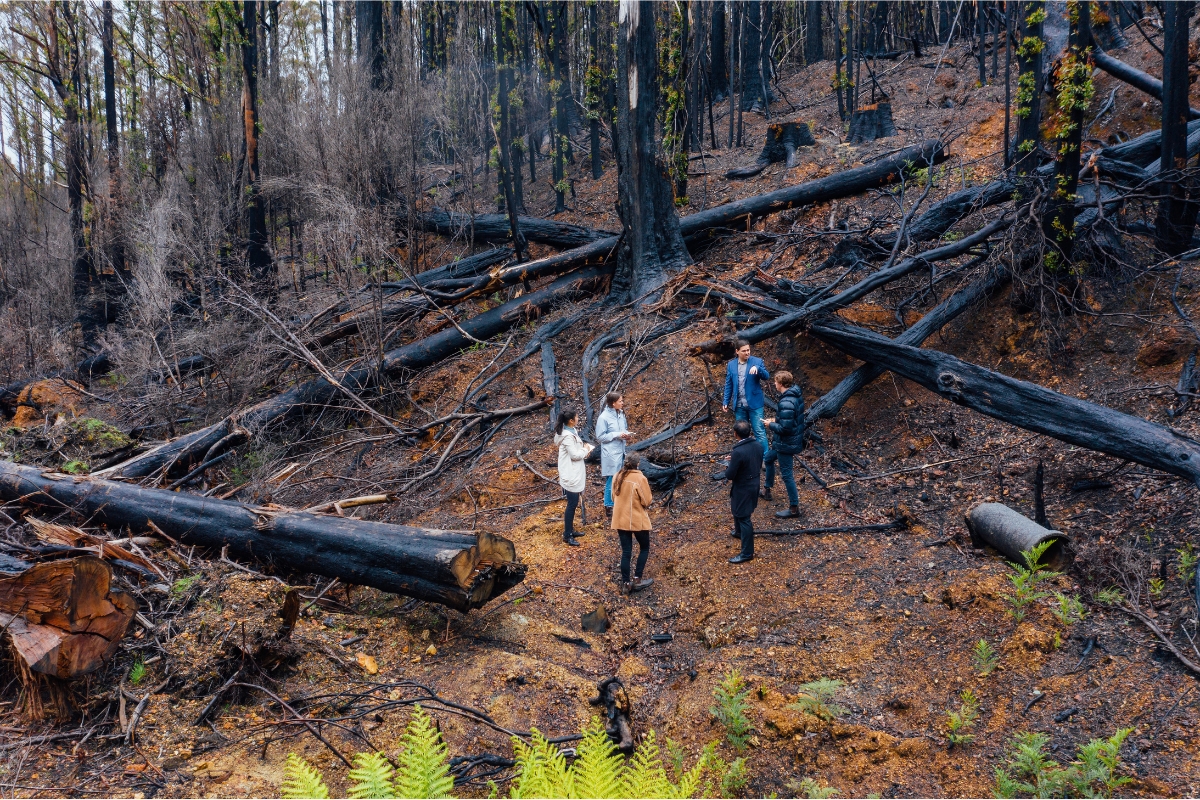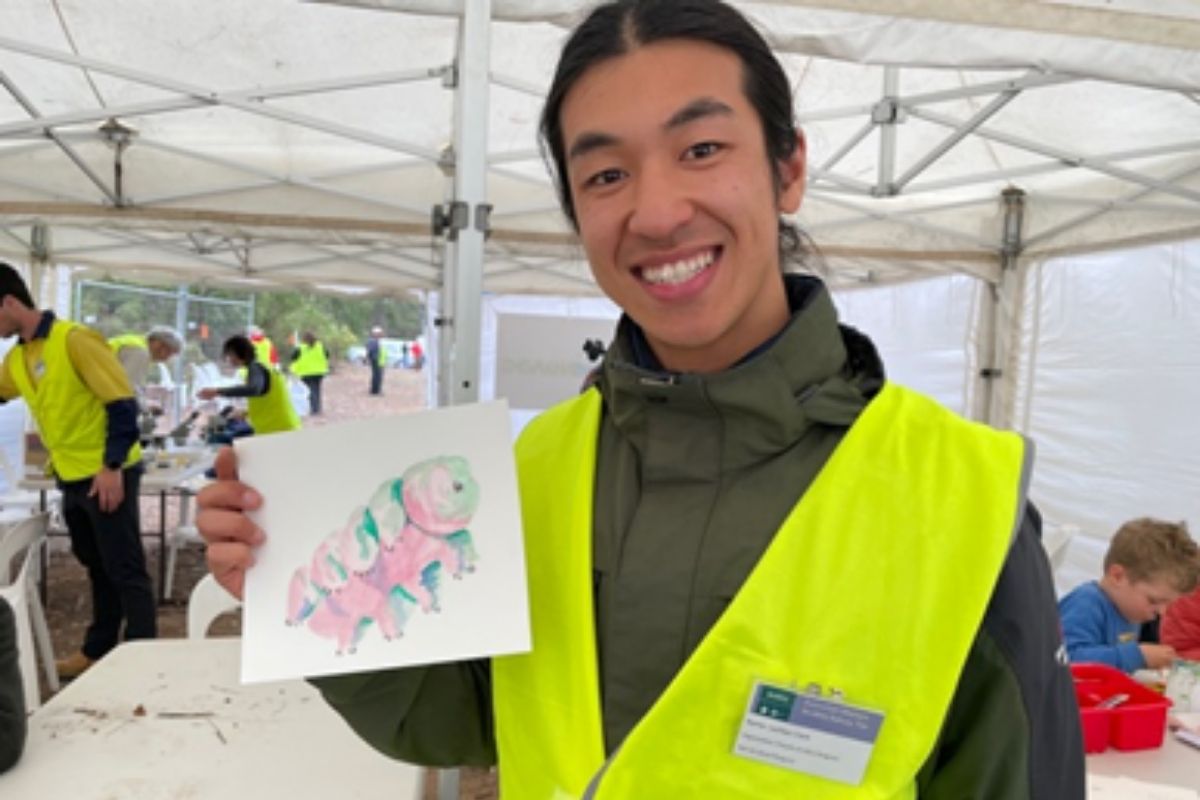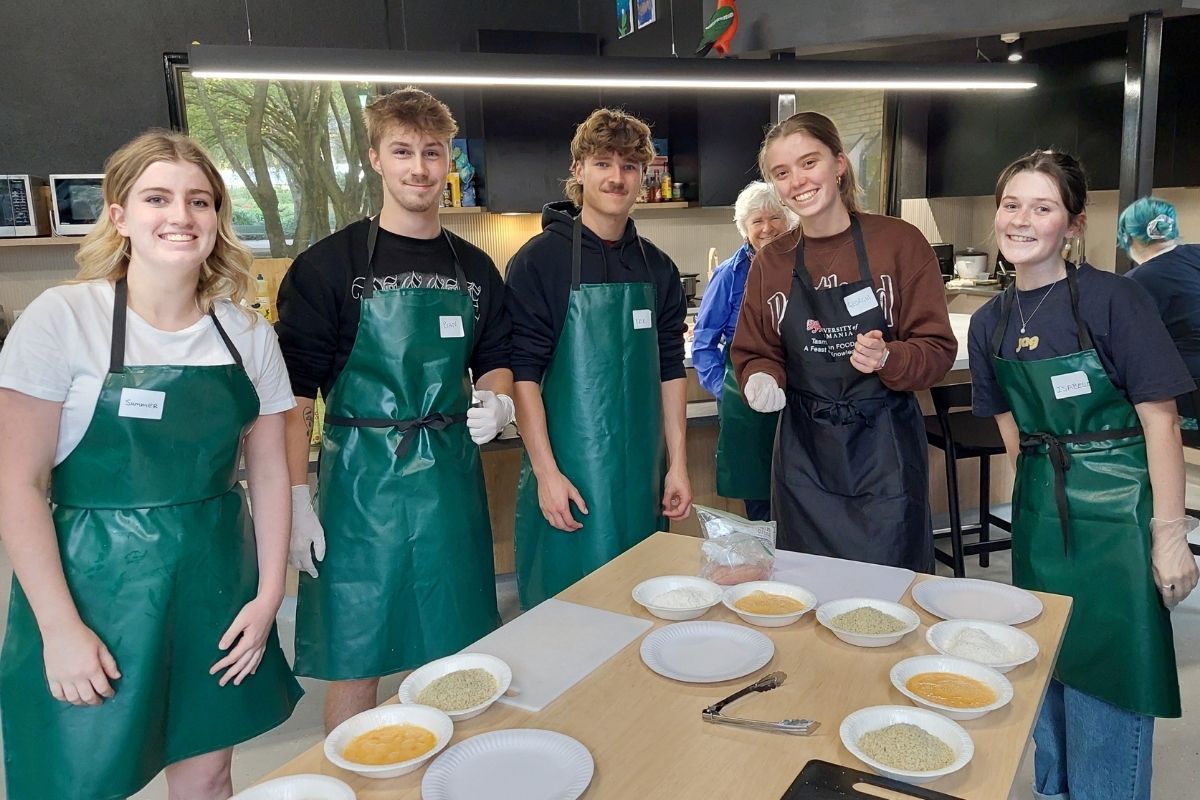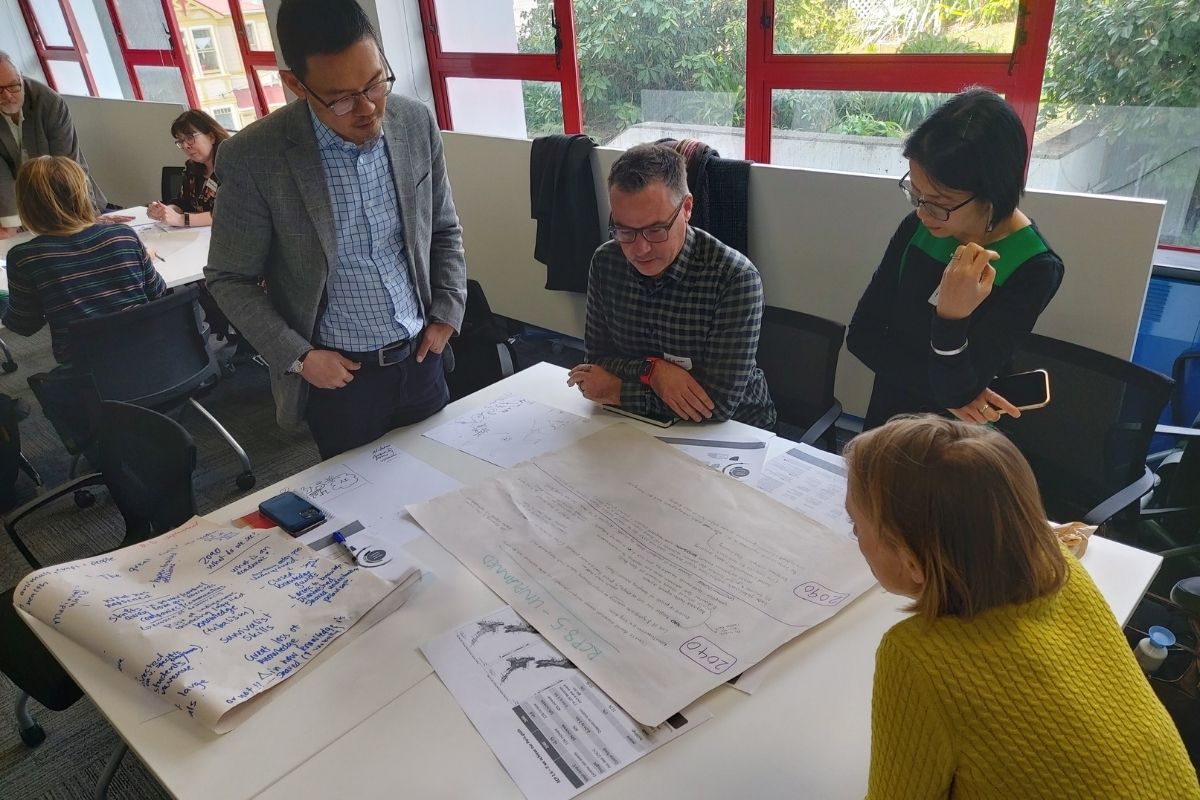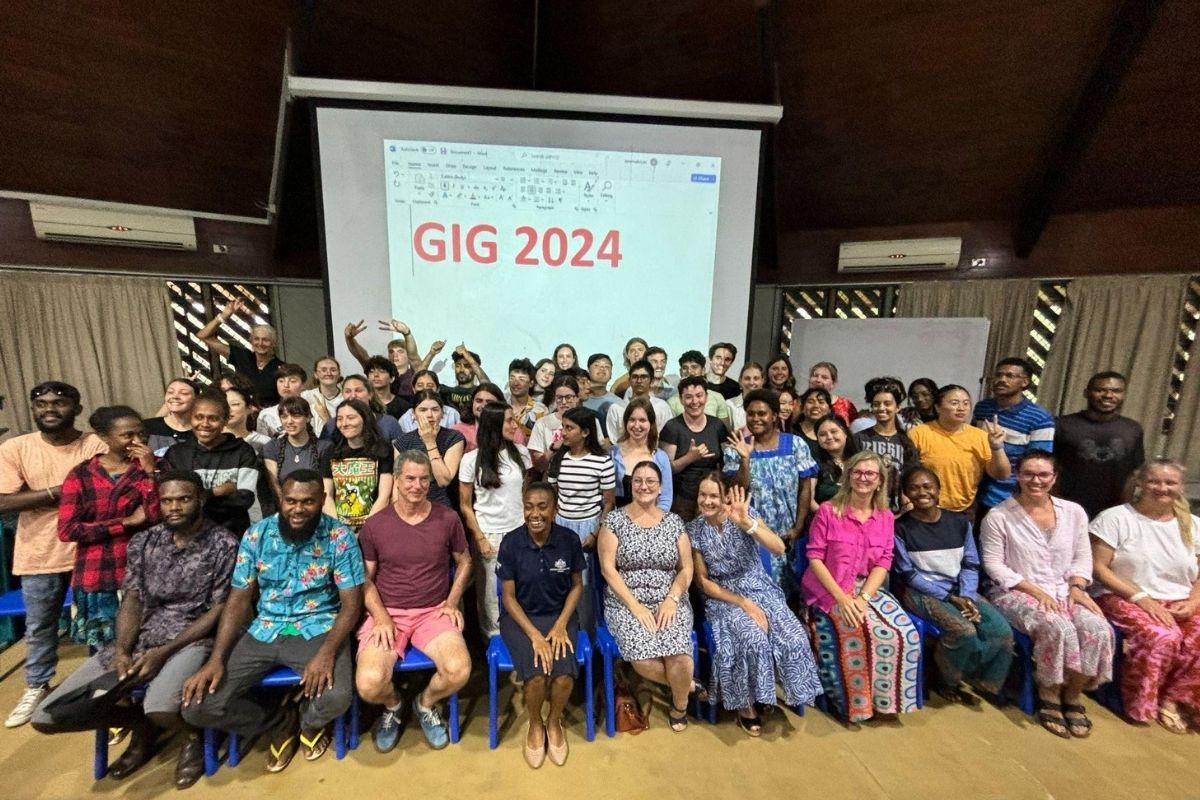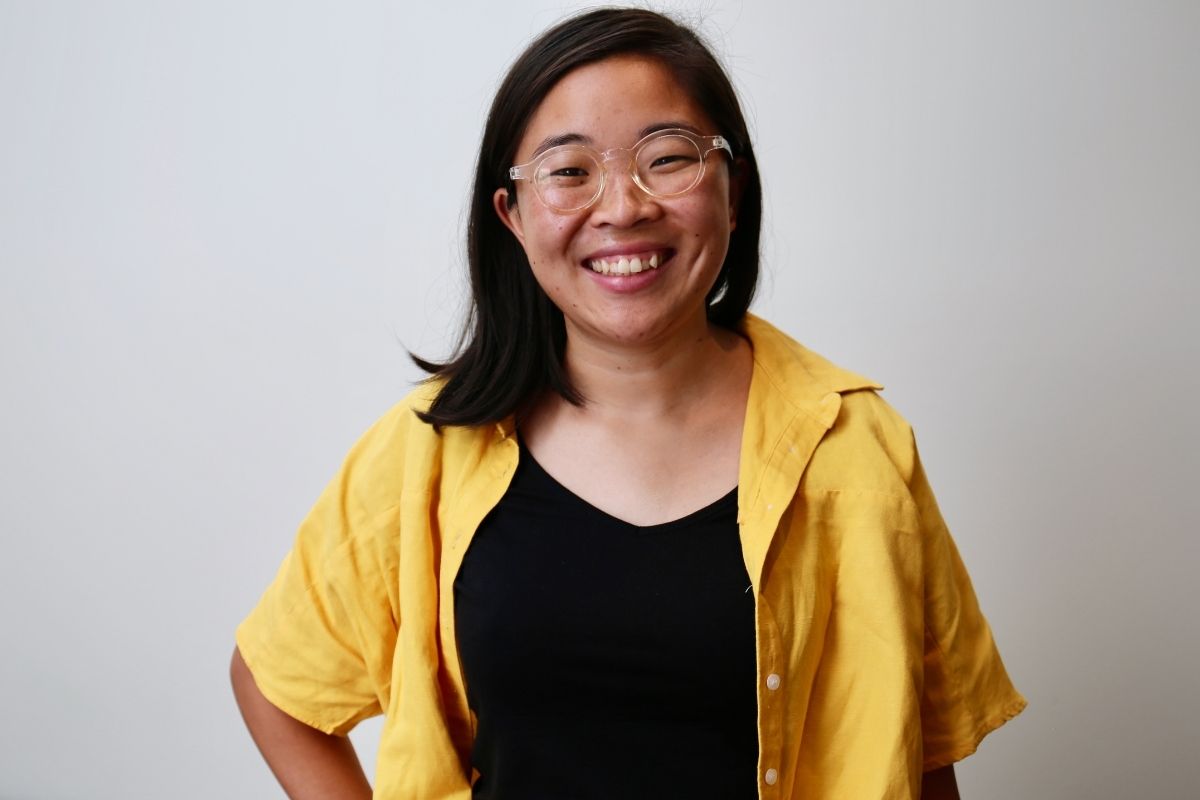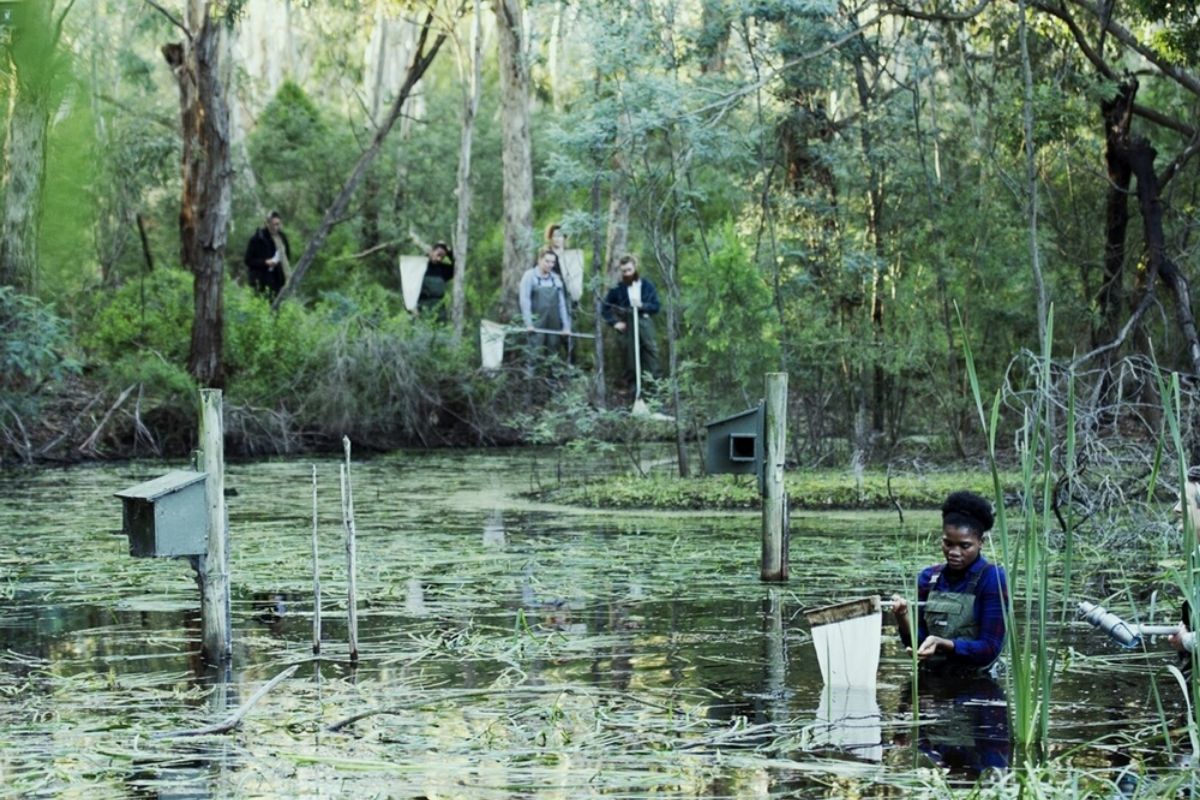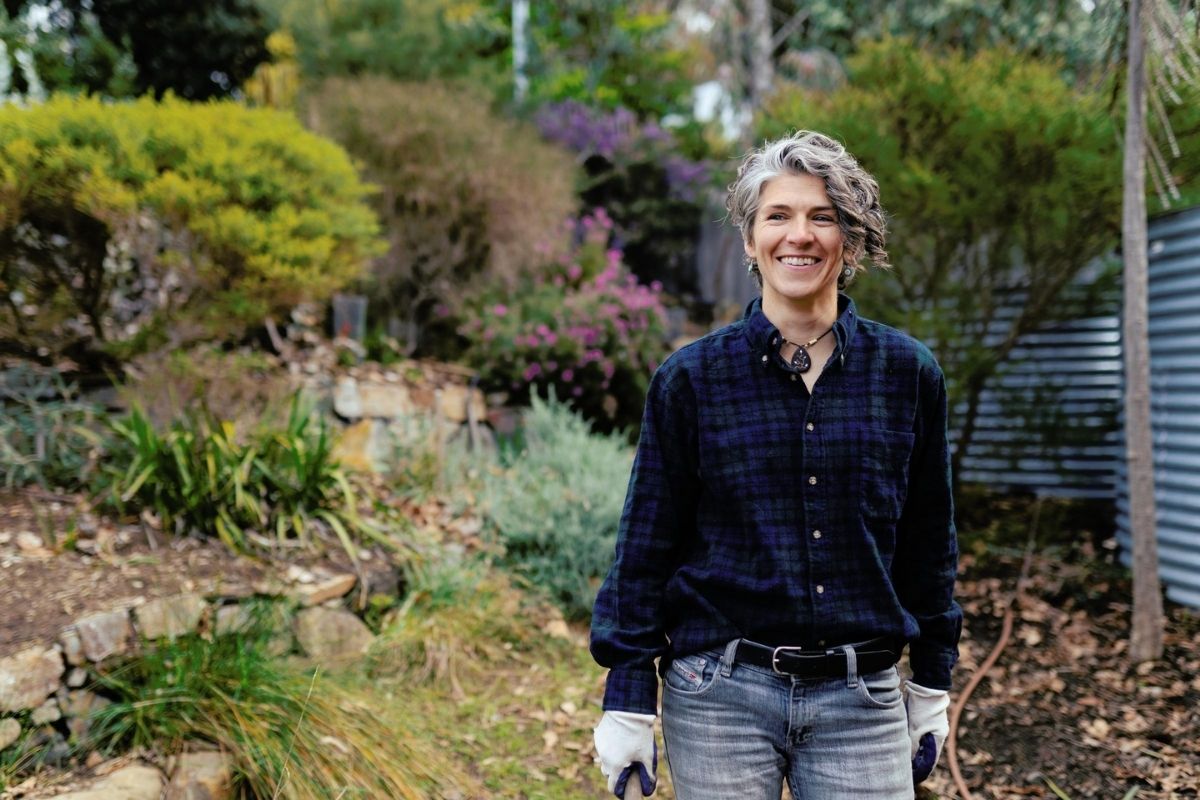Next Generation Learning & Skills/Winners category
TAFE NSW’s “Skilling up the Next Generation of Sustainability Professionals” initiative is centred around its Higher Education (HE) Diploma of Sustainable Practice (DoSP). This forward-thinking program is designed to equip students with the essential knowledge, skills, and confidence needed to become effective sustainability professionals. Aligned with the standards set by the International Society of Sustainability Professionals (ISSP), the DoSP ensures graduates are ready to meet global industry demands. Delivered fully online, the course is learner-centred and project-based, fostering real-world impact while minimising academic misconduct. Since its inception, the program has empowered students to lead over 150 unique sustainability projects, contributing significantly to organisational and community improvements.

Environmental and Social Benefits
- Sustainable Impact Projects: Students have led projects that include diverting 646 tonnes of waste from landfill, achieving B Corp certification for organisations, and establishing greenhouse gas emissions inventories for large regional councils. These projects not only enhance the students’ learning but also deliver tangible environmental and social benefits, such as significant operational savings and progress toward Net Zero targets.
- Global Reach and Accessibility: The program’s online delivery ensures that students from across Australia and internationally can access this critical training, expanding the reach and impact of sustainable practices globally.
- Community and Organisational Benefits: The DoSP’s focus on real-world projects ensures that students are making immediate contributions to their workplaces and communities, enhancing the resilience and sustainability of these organisations.
Leadership and Engagement
- Industry Collaboration: The DoSP is developed and continuously improved in close collaboration with industry experts, including past Presidents of the ISSP, ensuring that the curriculum remains relevant and cutting-edge. Regular guest speakers and professional networks provide students with industry insights and valuable connections.
- Student-Centred Learning: The learner-centred approach, combined with project-based learning, allows students to apply theoretical knowledge directly to sustainability challenges within their organisations. This approach not only enhances learning outcomes but also ensures that students are making meaningful contributions to sustainability and gaining professional experience from the outset.
- Equity and Inclusivity: The program is designed to be accessible to a diverse range of students, ensuring that all learners, regardless of their background or location, can benefit from this leading-edge education in sustainability.
Significance to the Sector
- Pioneering Program: As the first program of its kind fully aligned with the ISSP standards in Australia, the DoSP sets a new benchmark for sustainability education. Its success demonstrates the importance of aligning educational programs with global industry standards.
- Scalable and Replicable: The program’s design allows for scalability and replication across other educational institutions. Its integration of contemporary trends such as GenAI and mandatory disclosure ensures that it remains relevant as the field of sustainability evolves.
- Sector Leadership: TAFE NSW’s initiative positions it as a leader in sustainability education, providing a model that can inspire and guide other institutions in developing their own programs focused on sustainability.
Wider Societal Impact
- Workforce Development: The DoSP is producing a new generation of sustainability professionals equipped to lead and innovate in all sectors. Graduates are not only meeting current sustainability challenges but are also positioned to drive future advancements in sustainability practices worldwide.
- Community Engagement: The projects led by students have far-reaching impacts, from reducing environmental footprints to enhancing social responsibility within their communities. These efforts contribute to broader societal goals, such as achieving the Sustainable Development Goals (SDGs).
- Global Influence: The program’s alignment with international standards and its global reach ensure that its impact extends far beyond Australia, influencing sustainability practices and education on a global scale.
TAFE NSW’s “Skilling up the Next Generation of Sustainability Professionals” initiative exemplifies a comprehensive and innovative approach to sustainability education. Through its Higher Education Diploma of Sustainable Practice, TAFE NSW is not only equipping students with the knowledge and skills needed to excel in sustainability roles but is also fostering real-world impact through student-led projects. This program sets a new standard for sustainability education, providing a scalable model that can be replicated across the sector and contributing significantly to global sustainability efforts.
Top 3 learnings
Supported by

Category finalists
Next Generation Learning & Skills
Next Generation Learning & Skills
Sustainability Institution of the Year/Winners
Sustainability Institution of the Year/Winners
Next Generation Learning & Skills/Winners
Next Generation Learning & Skills/Winners
Climate Action/Winners
Climate Action/Winners
Creating Impact/Winners
Creating Impact/Winners
Student Engagement/Winners
Student Engagement/Winners
Powerful Partnerships/Winners
Powerful Partnerships/Winners
Next Generation Learning & Skills
Next Generation Learning & Skills
Diversity, Equity and Inclusion/Winners
Diversity, Equity and Inclusion/Winners
Next Generation Learning & Skills
Next Generation Learning & Skills
Nature Positive/Winners
Nature Positive/Winners
Staff Champion/Winners
Staff Champion/Winners
Student Champion/Winners
Student Champion/Winners
Past winners
Benefitting Society/Winners
Benefitting Society/Winners
Diversity, Equity & Inclusion in Sustainability/Winners
Diversity, Equity & Inclusion in Sustainability/Winners
Climate Action/Winners
Climate Action/Winners
Sustainability Institution of the Year/Winners
Sustainability Institution of the Year/Winners
Creating Impact/Winners
Creating Impact/Winners
Creating Impact/Winners
Creating Impact/Winners
Top 3 learnings
Next Generation Learning & Skills/Winners category
TAFE NSW’s “Skilling up the Next Generation of Sustainability Professionals” initiative is centred around its Higher Education (HE) Diploma of Sustainable Practice (DoSP). This forward-thinking program is designed to equip students with the essential knowledge, skills, and confidence needed to become effective sustainability professionals. Aligned with the standards set by the International Society of Sustainability Professionals (ISSP), the DoSP ensures graduates are ready to meet global industry demands. Delivered fully online, the course is learner-centred and project-based, fostering real-world impact while minimising academic misconduct. Since its inception, the program has empowered students to lead over 150 unique sustainability projects, contributing significantly to organisational and community improvements.

Environmental and Social Benefits
- Sustainable Impact Projects: Students have led projects that include diverting 646 tonnes of waste from landfill, achieving B Corp certification for organisations, and establishing greenhouse gas emissions inventories for large regional councils. These projects not only enhance the students’ learning but also deliver tangible environmental and social benefits, such as significant operational savings and progress toward Net Zero targets.
- Global Reach and Accessibility: The program’s online delivery ensures that students from across Australia and internationally can access this critical training, expanding the reach and impact of sustainable practices globally.
- Community and Organisational Benefits: The DoSP’s focus on real-world projects ensures that students are making immediate contributions to their workplaces and communities, enhancing the resilience and sustainability of these organisations.
Leadership and Engagement
- Industry Collaboration: The DoSP is developed and continuously improved in close collaboration with industry experts, including past Presidents of the ISSP, ensuring that the curriculum remains relevant and cutting-edge. Regular guest speakers and professional networks provide students with industry insights and valuable connections.
- Student-Centred Learning: The learner-centred approach, combined with project-based learning, allows students to apply theoretical knowledge directly to sustainability challenges within their organisations. This approach not only enhances learning outcomes but also ensures that students are making meaningful contributions to sustainability and gaining professional experience from the outset.
- Equity and Inclusivity: The program is designed to be accessible to a diverse range of students, ensuring that all learners, regardless of their background or location, can benefit from this leading-edge education in sustainability.
Significance to the Sector
- Pioneering Program: As the first program of its kind fully aligned with the ISSP standards in Australia, the DoSP sets a new benchmark for sustainability education. Its success demonstrates the importance of aligning educational programs with global industry standards.
- Scalable and Replicable: The program’s design allows for scalability and replication across other educational institutions. Its integration of contemporary trends such as GenAI and mandatory disclosure ensures that it remains relevant as the field of sustainability evolves.
- Sector Leadership: TAFE NSW’s initiative positions it as a leader in sustainability education, providing a model that can inspire and guide other institutions in developing their own programs focused on sustainability.
Wider Societal Impact
- Workforce Development: The DoSP is producing a new generation of sustainability professionals equipped to lead and innovate in all sectors. Graduates are not only meeting current sustainability challenges but are also positioned to drive future advancements in sustainability practices worldwide.
- Community Engagement: The projects led by students have far-reaching impacts, from reducing environmental footprints to enhancing social responsibility within their communities. These efforts contribute to broader societal goals, such as achieving the Sustainable Development Goals (SDGs).
- Global Influence: The program’s alignment with international standards and its global reach ensure that its impact extends far beyond Australia, influencing sustainability practices and education on a global scale.
TAFE NSW’s “Skilling up the Next Generation of Sustainability Professionals” initiative exemplifies a comprehensive and innovative approach to sustainability education. Through its Higher Education Diploma of Sustainable Practice, TAFE NSW is not only equipping students with the knowledge and skills needed to excel in sustainability roles but is also fostering real-world impact through student-led projects. This program sets a new standard for sustainability education, providing a scalable model that can be replicated across the sector and contributing significantly to global sustainability efforts.
Supported by

Related finalists
Next Generation Learning & Skills
Next Generation Learning & Skills
Sustainability Institution of the Year/Winners
Sustainability Institution of the Year/Winners
Next Generation Learning & Skills/Winners
Next Generation Learning & Skills/Winners
Climate Action/Winners
Climate Action/Winners
Creating Impact/Winners
Creating Impact/Winners
Student Engagement/Winners
Student Engagement/Winners
Powerful Partnerships/Winners
Powerful Partnerships/Winners
Next Generation Learning & Skills
Next Generation Learning & Skills
Diversity, Equity and Inclusion/Winners
Diversity, Equity and Inclusion/Winners
Next Generation Learning & Skills
Next Generation Learning & Skills
Nature Positive/Winners
Nature Positive/Winners
Staff Champion/Winners
Staff Champion/Winners
Student Champion/Winners
Student Champion/Winners
Other finalists
Climate Action

Driving Towards Tomorrow’s Campus with Vehicle-to-Grid EV Technology
As part of Flinders University’s drive to innovate and become a leader in climate action, the University launched its Vehicle-to-Grid (V2G) initiative. This involved installing and maintaining 20x V2G and smart chargers for its growing electric vehicle fleet. Leveraging 100% renewable energy generated by ENGIE’s Willogoleche Wind Farm and Flinders University’s solar power systems, this enables the storage of renewable energy in EV batteries to be discharged on campus during peak demand periods. Hence, allows for these EV fleets to operate as a Virtual Power Plant (VPP) to deliver peak demand management and optimization of behind-the-meter generation.
Overall, this initiative demonstrates the reliability and scalability of bi-directional and uni-directional smart-charging systems for EVs in reducing GHG emissions while facilitating teaching, research, and innovation opportunities. Moreover, it exemplifies a sustainable and innovative solution to scale energy storage technology and increase renewables.
Sustainability Champion – Staff/Winners

Brandan Espe
Environmental Officer / Acting Grounds Supervisor
Brandan has brought over 50 federally listed Endangered species of plant into the James Cook University living collection, many of which have never been cultivated and are found in no other collection in the world.
Of these, over half have been sustainably wild collected, inclusive of field and clone data, so they can be used for ongoing conservation, research and teaching, the remaining being sourced from private and partner organisations through favours of service or trades.
He personally funded the project from 2019-2022, until funding was awarded for the program due to its success, with the program now being engrained into the Universities landscapes for ongoing management should he leave JCU, creating a threatened species legacy collection.
The program has now expanded beyond this, with an additional 48 species now funded for further addition, some of which are only known from less than 5 sightings in history.
Student Engagement

Sustainability Leaders creating real impact!
La Trobe created a unique Sustainability Leaders volunteering program to increase engagement with students on campus and empower them to act against waste and promote sustainability. It included the following initiatives:
- Promoting the reusable crockery implementation,
- Increasing knowledge action of other students on campus to diversion comingled recycling and organic waste from landfill.
- Focus on waste audits and data,
- Improved signage through new waste posters for students living on campus.
- Collaboration with Cirka (our cleaning and waste partner) to create a waste wall and;
- Learning all things sustainability (net zero, biodiversity, waste, reusables, engagement)
These initiatives yielded significant results and with a reduction in waste contamination by almost 40% at the residential buildings and engagement with over 80 groups of people for the Reusable Revolution.
Creating Impact

Where knowledge meets habits: Empowering students for a sustainable tomorrow
Our online Sustainability Challenges offer participants an engaging, self-paced learning experience centered around a specific United Nations Sustainable Development Goal (UNSDG). Requiring minimal resourcing and at zero-cost to participants, we’ve created replicable, compact, scalable, and impactful learning opportunities that result in real impact.
The Challenges follow a structured process that moves participants from knowledge gain to simple action to celebration, to establish small but mighty habits relating to waste and carbon emissions. This approach recognises that knowledge alone is often insufficient to drive behaviour change, and that ease of action and celebration are crucial components in creating sustainable habits.
Sustainability Champion – Staff/Winners

Catherine (CeeJay) Donovan
Veterinary nurse – Anaesthesia
From establishing the Massey Vet School Green Team to leading impactful initiatives, my commitment to environmental sustainability has been making waves. With the help of my team, I have accomplished numerous small, yet meaningful actions, including integrating a sustainability lecture for final year vet students and implementing battery recycling alongside rechargeable battery use. Our larger projects encompass the introduction of green waste and soft plastics recycling bins, an energy audit resulting in power-saving measures, and playing a part in a successful rubbish audit. I spearheaded the ‘6 in 6’ campaign, empowering individuals with six simple steps for workplace sustainability. Through the SustainaVet social media pages I help to educate and inspire peers nationwide. As the Massey School of Veterinary Science sustainability champion, I had the privilege of speaking at the annual veterinary conference on sustainability in clinical practice. Currently I’m conducting pioneering research on responsible cat waste disposal. Together, we’re forging a greener future, one initiative at a time.
Sustainability Champion – Student

Louis Walmsley
SDG Coordinator Monash Association of Sustainability, Office Bearer Monash Student Association’s Environmental and Social Justice Department, Masters of Environment and Sustainability Student
Louis is an exceptional student sustainability leader at Monash University. His passion and dedication to sustainability have made a significant impact on the community. Louis’s values revolve around sustainability, which is evident upon meeting him. He actively participates in various sustainability groups, demonstrating his commitment to creating a more environmentally conscious society.
One of Louis’s notable involvements is with Precious Plastic Monash, where he organizes remarkable events and fosters collaboration among like-minded individuals, student groups, and staff. His contributions to the Monash Association of Sustainability have allowed him to conduct valuable research on plastic usage and climate action, resulting in positive changes within the university.
Through his work with the Monash Student Association, Louis has engaged hundreds of students in fun and interactive sustainability initiatives. He took the initiative to organize a sustainability food fair, which was one of the largest sustainability-related events held at Monash post-COVID. This accomplishment is a true testament to Louis’s hard work and creativity.
Louis is an outstanding student leader whose efforts in sustainability have had a lasting impact on Monash University and its community. His inspiring nature resonates with everyone who knows him.


